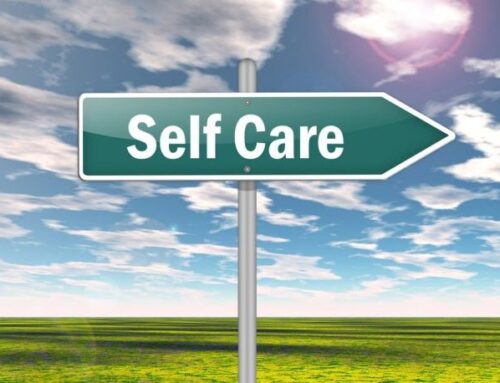Today I want to talk about a subject that is rarely mentioned, and that is the subject of being overly self-absorbed, detailing the effect, it can have on your mental health and other negative consequences. If there was one thing that helped my mental well-being and sense of freedom more than anything else, it was ending this destructive habit.
What does it mean to be self-absorbed? If you spend most of your day obsessing over your mental and emotional state or continually worrying about how others are perceiving you, then you are overly self-absorbed.
Negative Effects of Being Self-Absorbed
- You are never present towards life or others
- A decline in mental health
- Feeling stuck in your head
- Mental Exhaustion
- Obsessive rumination
- Struggle to build and maintain friendships/relationships
- Depression/experiencing no joy in life
- Developing hyperawareness issues
- A feeling of detachment from your surroundings
What causes us to be so self-absorbed?
Poor self-esteem can cause self-absorption, as people who suffer from low self-esteem are always questioning themselves and worrying about how others perceive them. It can also be a byproduct of those who are obsessed with self-help as they continually strive to work on improving themselves. More commonly though, it is driven by people who are troubled by uncomfortable thoughts and feelings, and so they become obsessed with trying to manage and fix their inner world. Unfortunately, the approach towards fixing things that work in the outside world can often have the opposite effect when directed towards our inner world.
Why does this approach make things worse?
Well, firstly, narrowing your focus down on a feeling only increases the discomfort. It gives more power and fuel to the area of discomfort and prevents you from being present towards life and others. So many anxiety sufferers tell me how they feel disconnected from the world around them and struggle to follow conversations.
We need to see that awareness and focus are two different things. Awareness is what takes in all your surroundings, it is free and open and is switched on all the time, even when you sleep. Focus is when you take that awareness and direct it towards one area. As your focus can only be on one thing at a time, you then lose the ability to be fully present towards life and others and find it harder to enjoy things or feel as though you are a part of them. This is why self-absorbed people struggle to build meaningful friendships and relationships, as they take little interest in the needs and wants of others as they become more obsessed with themselves and their feelings.
Obsessing over your inner world wears you out mentally
It takes up a huge resource of mental energy to be constantly worrying and obsessing over how you feel while trying to figure a way out. This is the reason that so many sufferers feel mentally drained and worn out and why their mental health suffers.
You find yourself stuck in your head.
Constant internal monitoring, or what’s more commonly known as chronic introspection, can lead to you feeling stuck in your head. You have spent so much time obsessing about how you feel and what you can do to be free, that you can’t think of anything else but yourself, even if you wanted to. In some cases, this can lead to hyperawareness issues where you are overly aware of your thoughts and actions and struggle to divorce your mind from them.
It can lead to depressive states
As people become more entrenched in this behaviour, it can lead to many depressive states. People sometimes wonder if depression leads to being self-absorbed or if being self-absorbed leads to depression. In my experience, I would say it is the latter. I had never been depressed in my life until I entered into toxic self-absorption. It drained me of every bit of energy I had. I was eventually running on empty while still obsessing each day over how I felt and what I could do to fix it, leading me further and further away from a solution.
It can lead to isolation
Being self-absorbed can eventually lead to isolating ourselves from people and the things we once enjoyed. This is mainly due to having very little energy to deal with outside events and finding it draining to be around others. This was true for me, but I also found I no longer enjoyed anything anymore. Everything I did felt like a chore. Unfortunately, as I found, the more we isolate ourselves, the more time we have to ruminate about our situation.
It leads to resistance towards feelings
The main reason people focus obsessively on how they feel is driven by the desire to change their current state. The natural reaction to an uncomfortable feeling is to want to suppress it or get rid of it but this very action of resistance only increases your suffering as you are rejecting what is and why trying to feel better never works. To be free of an uncomfortable feeling then you have to be willing to feel it otherwise it just gets stuffed backed down only to return later. Instead of turning away from your suffering try turning towards it and bring it closer, allow it to wrap itself around you, and fall deeply into it. This very action ends the resistance towards it and allows it to free itself from your inner space.
The bottom line is there are no positive effects from falling into this toxic habit. Also, as I found, it becomes a terrible cycle as the more you fall into self-absorption, the worse you feel, and the worse you feel the more you do it, and so the misery continues. This is why so many people get stuck for years wondering why nothing is working and so they keep searching for a way out while obsessively evaluating themselves and how they feel.

The realisation that finally helped me break free
In my book “At Last a Life”, I mentioned seeing a counsellor when I first suffered who said to me ‘You won’t get better until you stop trying to get better’. When I first heard this, I presumed he was crazy and thought if I didn’t try to get better then how could I ever do so? But eventually, as time passed, I understood what he truly meant.
His words finally hit when I was standing in a café waiting to get served and while doing so, I was once again obsessing about how bad I felt, searching around in my mind for that silver bullet that would make my suffering go away. I was so self-absorbed that I barely noticed anyone else around me. It then hit me; I felt so detached because I was constantly monitoring myself while being stuck in my head searching for a way out. I then looked around the café and saw people just chatting away happily while being fully engaged in what they were doing. I saw that these people weren’t doing what I was doing, and that is why they felt so much better and were far more present than I was.
This realisation that I was doing this to myself had never been more obvious to me! I then remembered my counsellor’s words and now truly understood what he meant. I was so self-absorbed because I felt so bad, yet feeling bad was driving more self-absorption, leading me to feel worse, and so it was a continuous cycle. To escape this, what if I just allowed myself to feel like I did without constantly obsessing over it all and mentally trying to figure a way out? How would that work?
Well, as it happened, it worked very well indeed. I still felt pretty bad due to what I had done to myself previously, but so much of the suffering fell away and I began to feel far more present as I gave up obsessing over myself. Whatever happened going forward, I knew that I had seen the cause of so much of my suffering that day. I had finally broken a cycle that had kept me stuck for so long.
How could I ever feel better while doing the very thing that was making me feel so bad? I couldn’t believe that I had not seen this before. This is what true ‘Aha’ moments are like. It’s beyond understanding and it’s so completely obvious, you can’t believe you missed it. So, he was right. “You won’t get better until you stop trying to get better” Trying to fix myself was the problem all along. The more I tried to solve myself the more broken I became.
Trying to get out of something instead of allowing it to be part of you only leads to you obsessing over how you feel. It very much puts your focus back on you and invites more introspection and rumination in, the very things that keep the condition going.

Get out of your head and engage with life
I once spoke with someone who had been advised by his counsellor to watch every negative thought, catch it and then try and replace it with a positive one. When he came to me after a few weeks of trying this, he was in a terrible state as all he had been doing all day was staring inwardly trying to catch and replace these thoughts. I explained to him that being free of the influence of negative thoughts was a process of learning to disengage with them by seeing them as unimportant and not personal. It was never about trying to replace them or continually observing them. This approach only gave them more importance and created so much extra mental work. It had not only exhausted him mentally but now his attention was stuck inwardly. This is why he felt disengaged from life and so psychologically messed up. It didn’t take long for him to see the issue, stop following the advice he had been given and become free of what he had created.
I also once spoke to a lady who was obsessed with self-improvement for many years until one day her mother said “You spend all your life buried in books, going on retreats, or downloading the latest course and where has it got you? Just accept yourself for who you are and go live your life instead of obsessing about yourself all the time”.
She said that it hit her instantly that she hadn’t been living her life at all as her obsession with improving herself had taken over. She stated that it seeped into everything she did as she was constantly evaluating herself, how she felt, how she should act and how she was coming across to others. She admitted it had worn her out, made more of a mess of her and that nothing felt authentic or spontaneous anymore.
The day she saw this, she said she felt free for the first time in years. Instead of spending all her time trying to fix herself or get somewhere, she now had more time for her hobbies, friends and family. She felt far more mentally refreshed and alive as she no longer wasted energy obsessing over herself. Her interactions felt far more spontaneous as she no longer worried about them. She finished by saying, “I was looking for the answer to feel better when all along the only thing I needed to do was to stop trying to fix myself.”
I related to this story as I was also stuck in trying to fix myself for years. When I gave up and just allowed myself to feel how I did and got on with life regardless, then things changed dramatically. People hear the word surrender as the path to freedom, but very few people truly understand what it means. My surrender came when I had a deep realisation that my suffering was due to me trying to escape how I felt, my complete non-acceptance of how I was feeling. Maybe I had to go through this never-ending war with myself and hit a brick wall before this became obvious to me.
During this time I would ask myself questions like:
How could it ever be possible to manipulate yourself into a natural state, would that not happen if you left yourself alone? How can being at war with yourself ever lead to being at peace? How can you ever be spontaneous when you are trying to live your life through a bunch of techniques or understandings? If you stopped trying to figure anything out would the mental exhaustion lift? If you just went back to living your life instead of obsessing over how you feel, would your brain then start to think of other things instead of obsessing over you and how you’re feeling? I would ask these questions and more, and eventually, it became obvious to me that I was the cause of how I was feeling and that I could just completely let go of trying to escape my suffering.
At first, this seemed too simple. How could I ever feel better if I stopped trying to feel better? This is when the therapist’s words once again came back to me. Trying to fix myself was the reason for so much of my suffering so the obvious answer to feel better was to give it all up, just like the lady did on her self-improvement journey.
Having said all that there may be parts of you that need working on and there is nothing wrong with trying to improve yourself if done in the right way and sporadically. But when it takes up all your day, leading to you constantly evaluating yourself, falling into obsessive inward observation, obsessively trying to fix yourself or forever mulling over your problems, then it can begin to work against you and become unproductive. This is not personal growth, this is rumination.
I still had certain issues I needed to work through after most of my anxiety had left me. Going through what I did robbed me of my self-confidence and I wasn’t great socially, but now I approached these issues differently. It was now about finding out the root cause of my problems and working on this. This approach did not involve a constant monitoring of my inner state. It was no longer about inner manipulation or trying to mentally fix myself. It was about educating myself on the cause of it and making changes there while at the same time getting on with my life.
Tips on how to overcome being so self-obsessed
- Know that you are human. As a human being, we all have flaws and different personality traits. Learn to be more accepting of who you are rather than always trying to improve yourself or live up to someone else expectations.
- Stop trying to manipulate a different state. Allow yourself to feel the way you do, and it will pass in its own time. The less concern you put into your inner world, the more outward-looking you will become.
- Practice self-care. Creating more positive feelings reduces self-absorption and the better you feel about yourself, the less you care what others think.
- Live your life. Take up new hobbies or go for a walk. This automatically puts your attention elsewhere and helps you to become more outward than inward.
- Cease the need to constantly evaluate yourself and be more present in the moment. Learn to put your attention on what’s around you rather than obsessing over how you feel.
- Don’t isolate yourself. This will only increase rumination due to the lack of outside stimulation.
- If you are obsessed with the self-help industry and rely on it to herd you around, then let go of this obsession and leave the subject of fixing yourself behind you. You’re not here to spend your life trying to fix yourself, you’re here to live and engage with life.
- Give yourself time and be patient as you move forward with new behaviours and habits.
- Finally, learn to let go of your chronic self-observation and realise what it is doing to you. It is not productive; it will not lead to any solution and will only create more suffering.
Not everyone who suffers from anxiety becomes so self-obsessed, but those who do will recognise themselves above. The process is about living less in your head, weaning yourself off being overly concerned about all things personal, and engaging more in the outside world. It is about learning to let go of all those self-obsessed habits that were creating the very suffering you were trying to escape from.
I hope this helps you to break out of the cycle. Once again it takes time to break old habits and develop new ones, so do be patient with yourself.
- How being too Self-Absorbed can affect your health - 21st February 2024
- The importance of self-care for good mental health - 21st April 2023
- Why does my mind go blank when talking with others? - 7th March 2022






Thank you soo much .such a wonderful read it’s absolutely me
Thanks Paul, great article !
What an amazing blog – you have described me to a t!!!! I’m guessing we all think our personal anxiety is more difficult to solve… but at the root it’s about the self obsession… I think I may have had my aha moment – time to throw away the self help books… and engage with life…. Thanks 🙏
Ooh lordy this is me to a T.
First thought was so HOW do I stop this ? 🤣🤣
This is just what I needed right now. Amazing post Paul.
Thank you.
Thank you Paul. I work night shifts and I live alone. My work pattern is such that I often have just one night off between two night shifts and sleep during the day so my life can be very isolating. I try to deal with this by socialising as much as I can during my time off and when I can’t see anyone I try to watch comedies and listen to engaging podcasts to keep me compnay and feel less alone.
I think a blog about depression is very helpful because so many of us, who have been stuck either in a very long period of anxiety or trapped in a cycle of seemingly never ending setbacks do go on to develop depressive elements to our suffering. At times the feelings are so oppressively dark, bleak and gloomy it feels like the depression is outperforming the original anxiety! Its tempting to think once that happens that everything has become much more serious and that it will be harder to recover, or that acceptance “won’t work” for depression.
But I also know that I do not experience that oppressive sense of nightmarish darkness when I haven’t been suffering with anxiety and I know that it eventually passes. Depression has not been an illness that has featured in my life when I have been well and not anxious so I know they go hand in hand. What we are talking about here essentially, is an emotion, or mental state that is unpleasant and undesriable. They are pretty much the same. I see so many searches online of people asking “does acceptance work for depression?” Or “is depression permanent unlike anxiety?” So I know lots of people are confused and nervous about this. Depression can feel even more deep set, immovable and frightening than anxiety. But its so inevitable that a stressed out, over worked brain will produce feelings of darkness and gloom. It shouldn’t be a surprise.
One of the things that help in this regard is definitely contact with positive, upbeat, or at least calm people. It really does focus your attention outward and you stop squirming in discomfort or worrying about how you feel. You stop over thinking because you are engaged in conversation. Really focusing on what they’re saying and trying to keep up with events in their lives, what’s happeneing to them, what they are worried about, or celebrating their successes, etc trains your brain to look outwards. After a while you begin to forget you are unwell. So much of this illness is about “remembering” you are unwell and being stuck on thought loops. The feelings can often fade when you forget to keep remembering you are unwell, so to speak.
My last lingering issue is bad dreams and nightmares. I often have bad dreams towards the end of my sleep and feel a huge surge of difficult to explain kind of intense distress, accompanied by dark gloom in the dream, and this often persists for a few hours after I wake up. I know the period of bad dreaming and morning distress is temporary but its proving to be very stubborn. Probably because I am impatient, waiting for it to go and become depsondent when it persists. This is creating an obsession and training my brain to focus on it more, as something important, therefore producing more of it.
“What you resist persists” as the saying goes. I think Claire Weekes advice to “never despair at the amount of time lost to anxiety and the years you’ve been suffering” is essential, because I think as people are recovering this sense of “I’ve never been ill this long before” or “I should have more more progress by now” can become a real source of angst and worry. I really miss deep, dreamless sleep and waking up feeling relaxed and OK. I just need to patiently allow the depression and know that all the “progress” is made during the darkest moments, not when you are feeling ok. If you can be ok with not being ok then that is a bigger stride than having a “good” day.